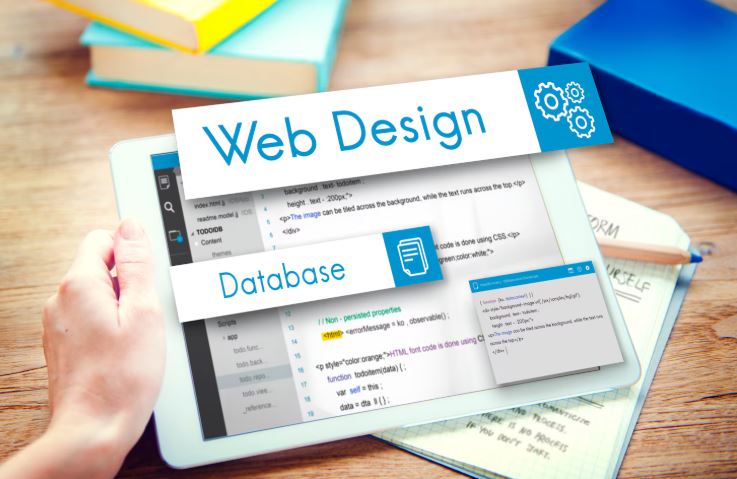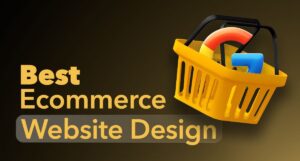Did you know that over 75% of all websites on the internet are powered by just a handful of CMS platforms? Whether you’re a small business owner in Dubai launching your first site or managing a large-scale online store, the right content management system (CMS) can make or break your digital success.
A CMS doesn’t just help you manage content; it also impacts your site’s speed, SEO, security, and scalability. Choosing the right one means less technical stress, more time to focus on growth, and a smoother experience for your visitors.
In this article from hdm Agency, your digital marketing partner in the UAE, we’ll walk you through the most popular CMS platforms for websites, what makes each one stand out, and how to pick the one that fits your needs perfectly.
Factors to Consider When Selecting a CMS
Before you jump into picking from the most popular CMS platforms for websites, take a moment to evaluate your goals, budget, and technical skills. Your CMS should work for you, not against you. Understanding the web cms meaning will help you see how each platform focuses on different aspects, such as design flexibility, security, and integration options. Here are the five most important factors to keep in mind:- Ease of Use: Look for an intuitive dashboard so even non-technical users can manage content with ease.
- Customization Options: Templates, plugins, and code flexibility are key for tailoring your site to your needs.
- Security Features: Regular updates, built-in protections, and strong community support are essential.
- Scalability: Your CMS should handle higher traffic and new features as your business grows.
- Cost: Some CMS platforms are free; others require monthly fees. Always consider the total cost of ownership.
Most Popular CMS Platforms for Websites
From beginner-friendly builders to advanced, developer-focused solutions, these are the platforms dominating the web today. If you’re working on a professional project like web design in Dubai, the right CMS will make your workflow more efficient and your site more appealing. We explore some of the top choices.
1. WordPress
Suitable for: Blogs, business websites, e-commerce, portfolios Free or Paid: Free core, paid themes, and plugins Suitable for UAE users: Yes, widely supported WordPress is the world’s most popular CMS, powering over 40% of all websites. It is open-source, highly customizable, and offers thousands of themes and plugins. Beginners love its easy-to-use dashboard, while developers appreciate its flexibility for coding custom features.2. Shopify
Suitable for: E-commerce stores Free or Paid: Paid subscription Suitable for UAE users: Yes, with local payment gateways Shopify is a hosted CMS designed for online stores. It provides built-in payment processing, inventory management, and shipping integrations. Businesses choose Shopify for its simplicity, security, and ability to scale without technical maintenance.3. Wix
Suitable for: Small business sites, personal websites Free or Paid: Free plan available, premium plans for advanced features Suitable for UAE users: Yes, supports regional settings Wix is a user-friendly CMS with drag-and-drop editing. It offers hundreds of templates, built-in SEO tools, and hosting included. Small businesses and personal brands use Wix to create professional sites without coding.4. Joomla
Suitable for: Complex websites, community portals Free or Paid: Free, open-source Suitable for UAE users: Yes, multilingual support available Joomla is an open-source CMS that balances flexibility with functionality. It has powerful user management features, making it ideal for membership sites or community-based platforms. However, it may require more technical skills than WordPress or Wix.5. Drupal
Suitable for: Large-scale, high-security websites Free or Paid: Free, open-source Suitable for UAE users: Yes, excellent for enterprise solutions Drupal is renowned for its robust security and scalability. It powers government websites, large corporations, and universities and is favored by developers for its powerful content management capabilities and extensive customization options.6. Webflow
Suitable for: Designers, creative portfolios, startups Free or Paid: Paid plans after a free trial Suitable for UAE users: Yes, supports international audiences Webflow is a CMS and design tool in one. It lets designers create visually stunning websites without coding. The platform also offers hosting, CMS collections, and responsive design controls.7. Squarespace
Suitable for: Creative professionals, small businesses Free or Paid: Paid subscription Suitable for UAE users: Yes, with global templates and integrations Squarespace is known for its beautiful, modern templates and all-in-one platform. It includes hosting, SEO tools, and e-commerce features. Many photographers, artists, and small business owners choose Squarespace for its ease of use and polished designs.8. Magento (Adobe Commerce)
Suitable for: Large e-commerce businesses Free or Paid: Paid (Adobe Commerce), open-source version available Suitable for UAE users: Yes, supports regional currency and payment systems Magento, now known as Adobe Commerce, is a powerful CMS for large-scale online stores. It offers advanced product management, complex pricing rules, and multi-store functionality. Businesses choose Magento for its flexibility, scalability, and deep customization options.9. Ghost
Suitable for: Blogging, publishing, content-focused websites Free or Paid: Paid hosted version, free self-hosted version Suitable for UAE users: Yes, with global hosting options Ghost is a lightweight CMS designed for professional publishers and bloggers. It focuses on speed, clean design, and a distraction-free writing environment. Its simple interface makes it ideal for content creators who want a fast, minimalist platform.10. HubSpot CMS
Suitable for: Marketing-driven business websites Free or Paid: Paid subscription Suitable for UAE users: Yes, supports global marketing campaigns HubSpot CMS integrates website management with powerful marketing tools. It allows businesses to create personalized content, track analytics, and manage leads. Companies choose it for its built-in CRM integration and marketing automation features.11. TYPO3
Suitable for: Enterprise-level websites, multilingual platforms Free or Paid: Free, open-source Suitable for UAE users: Yes, with advanced localization support TYPO3 is a robust CMS designed for large organizations that require high customization. It excels in handling complex, multilingual websites with advanced user permissions. However, it requires more technical knowledge than beginner-friendly platforms.12. Blogger
Suitable for: Personal blogs, hobby websites Free or Paid: Free Suitable for UAE users: Yes, available globally Blogger is Google’s free blogging platform. It is simple, easy to set up, and integrates with other Google services like AdSense. While it lacks advanced customization, it is perfect for beginners who want a quick way to publish content.13. PrestaShop
Suitable for: Small to medium-sized e-commerce stores Free or Paid: Free core, paid themes, and modules Suitable for UAE users: Yes, supports regional payment gateways PrestaShop is an open-source e-commerce CMS with a wide range of customization options. Store owners use it for its flexibility, large add-on marketplace, and multilingual capabilities. It is a cost-effective alternative to platforms like Shopify.14. Contentful (Headless CMS)
Suitable for: Developers, multi-platform content delivery Free or Paid: Free plan available, paid plans for advanced features Suitable for UAE users: Yes, with cloud-based hosting Contentful is a headless CMS that focuses on delivering content across websites, apps, and devices. It separates content management from design, allowing developers full creative freedom. Businesses use it for large projects requiring scalability and API integrations.15. Strapi (Headless CMS)
Suitable for: Developers, API-first applications Free or Paid: Free, open-source (paid hosting available) Suitable for UAE users: Yes, supports global deployment Strapi is an open-source headless CMS built for developers who want flexibility and control. It offers a user-friendly admin panel and strong API support for delivering content anywhere. Its open-source nature makes it highly customizable and cost-effective.
How to Choose the Best CMS for Your Needs?
Finding the right platform among the most popular cms for websites depends on your goals, budget, and skills. The Most Popular CMS Platforms for Websites vary in features, pricing, and customization. When choosing the right cms, it is important to think about your future growth and the type of content you will manage. The right choice will save you time, reduce costs, and improve your website performance. Here are 5 steps to choose the best CMS:- Step 1: Define Your Website Goals: Decide whether you need a blog, e-commerce store, or portfolio site. Your goals will guide which CMS fits best.
- Step 2: Assess Your Technical Skills: If you are not a developer, choose a beginner-friendly platform. Developers can go for more advanced CMS solutions.
- Step 3: Set Your Budget: Consider initial costs and ongoing expenses. Some platforms are free, but premium features or hosting may require payment.
- Step 4: Check Scalability and Flexibility: Choose a CMS that can grow with your business. Look for platforms with strong plugin or extension support.
- Final Step 5: Review Support and Community: Active support and a strong user community can save you time. This is especially important for troubleshooting and learning.
conclusion
The right CMS doesn’t just manage content; it helps you scale, improve performance, and reduce costs in the long run. Whether you want a drag-and-drop builder for simplicity or a headless CMS for developer freedom, the choice should fit your business model, audience, and growth plans.
If you’re still unsure which platform to choose, our team at hdm Agency in Dubai specializes in matching businesses with the perfect CMS. Book your free consultation today, and let’s build a website that works as hard as you do.
FAQ Section
- What is the difference between a hosted CMS and an open-source CMS? A hosted CMS is managed by a provider and includes hosting, while an open-source CMS gives you full control and requires separate hosting.
- Can I switch my website to another CMS later? Yes, but migration can be complex and may require professional help to preserve your content and SEO rankings.
- Do all CMS platforms support e-commerce features? No, some CMS are built for e-commerce, while others need plugins or integrations to add store functionality.
- Which CMS is best for SEO? WordPress is popular for SEO because of its plugins and flexibility, but other CMS can perform perfectly with proper optimization.
- Is it possible to run a multilingual website with any CMS? Many CMS platforms offer multilingual support, but some, like Joomla, TYPO3, and Drupal, handle it more efficiently.




